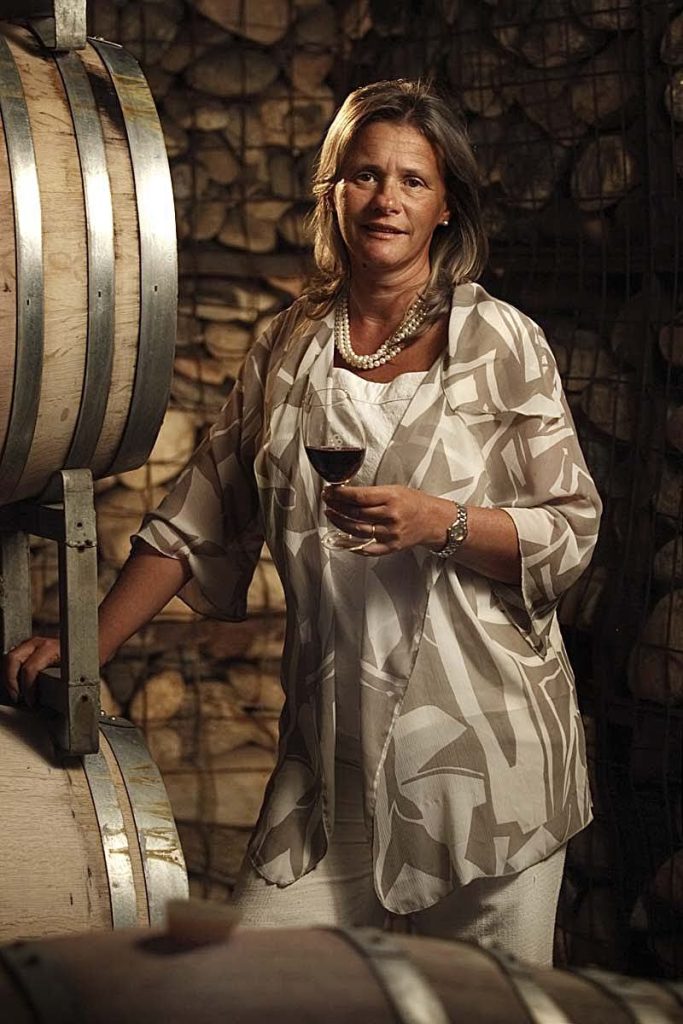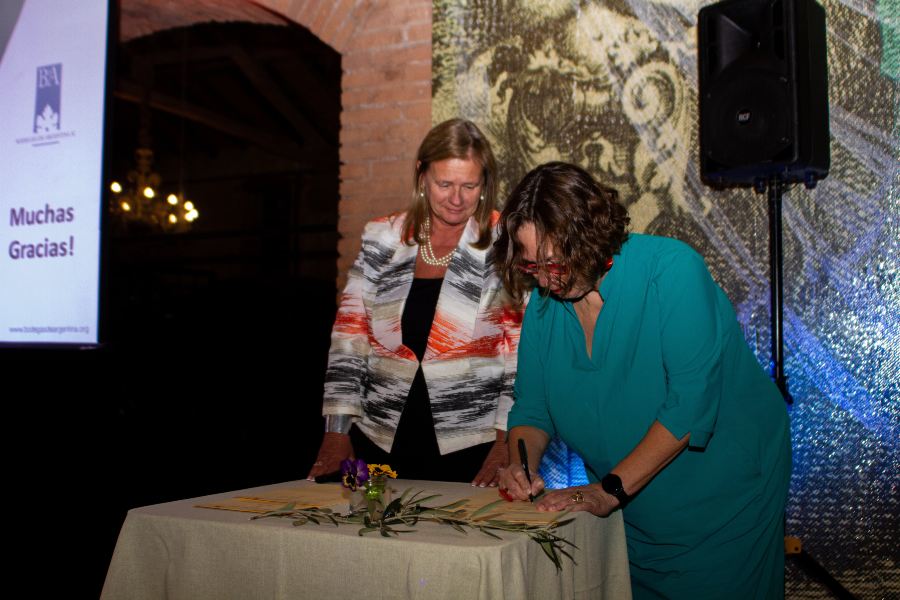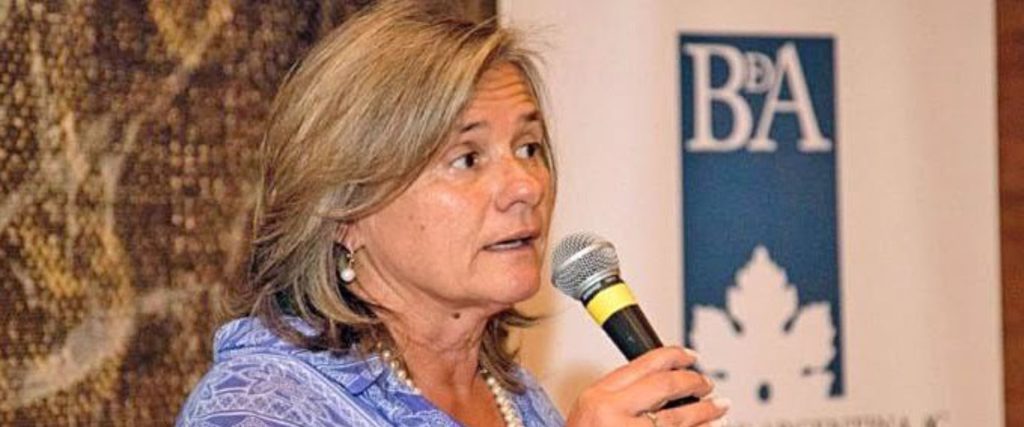Patricia is the owner of Tapiz, Zolo and Wapisa wineries and is the first woman to be named President of Bodegas de Argentina, an entity whose membership includes most of the leading wineries in the country as well as many small, and medium-sized enterprises. Under her leadership, the body became strongly committed to gender rights and equality of opportunity for women in the viticultural sector. For example, working in partnership with Wines of Argentina and Amfori, Bodegas de Argentina presented the first ever study of gender perspectives within the sector.
That is why Patricia Freuler is a leading woman in Argentine viticulture and as part of WofA’s celebration of Women’s month, in which we seek to highlight the work of women in the industry, we interviewed her about her work and contributions to Women of Argentina.
Interview with Patricia Freuler

How has the role of women in the Argentine viticultural industry changed in recent years?
I would say that it has seen significant change. We’re seeing far greater participation and visibility of women in different areas of the industry and at wineries. However, it’s still not as much as we would like, there’s a long way to go to ensure that women have the same opportunities as men.
There’s no doubt that there’s been a change of paradigm with regard to gender rights and we’re on the right path. At Bodegas de Argentina we are working on equality of opportunity and we believe it’s best done gradually, taking small but firm steps. This is a very male-dominated industry so trying to do everything all at once can generate resistance and conflict. We implement processes to allow us to demonstrate the existing inequality and our obligation to change that.
How did you start working toward this goal at Bodegas de Argentina?
A major step was to commission the first study of gender perspectives in the viticultural sector. Participation wasn’t as high as we’d like but it was useful in turning up a lot of significant and sensitive information. The results got the sector thinking very hard. For example, in general terms, women enter the industry with greater professional training than men for management roles and in other sectors they have better basic training. And yet, there are still far fewer women working in wineries.
Proving this allowed us to raise awareness within the industry, with concrete evidence, about the importance of ensuring equality of opportunity, demonstrating that we are missing out on a huge amount of human, intellectual and professional potential.
We went on to develop the Bodegas de Argentina Sustainability Protocol, which about a hundred wineries adopted and must re-certify every year by undergoing an audit of different areas of activity, which specifically includes a section on good practice in gender equality and equal opportunities that addresses discrimination of all kinds, not just gender but also those related to religion, age, ethnicity and ableism. One of the steps we included was the implementation of a “Blind Curriculum Vitae” during hiring processes.
How do you deal with resistance from within the sector when addressing these issues?
Bodegas de Argentina is a chamber of business that works to make the Argentine viticultural sector more competitive and address essential issues that affect the industry as a whole. The key to including other areas is demonstrating that we’re not losing our focus on the business side and making those other aspects a part of that. We successfully did so and now it’s a part of our sustainability protocols.
Do you work with other institutions and specialized bodies on gender issues and equality of opportunity?
Yes, for example, in October 2022, we signed a Memorandum of Understanding with Amfori BSCI “Trade with Purpose” to formalize our partnership on the promotion of sustainability throughout the Value Chain in the wine industry.
As President of Bodegas de Argentina I’m on the Gender Board of the Argentine Agri-Industrial Council. The Board is made up of twenty women who work in different sectors of Argentine agricultural industry and we work together with Lic. Paula Basaldúa, Coordinator of the Gender Cabinet of the National Ministry of Production and Development.
Of course, we also work with Wines of Argentina who in 2021 signed up to the United Nations Women’s Empowerment Principles.

And what is the current situation in terms of gender issues in the viticultural industry compared to other sectors?
As an industry we have made greater progress than other sectors. We share the same challenges as other regional economies but we’re a more sophisticated activity in which women can occupy technical, administrative and operational roles.
But we still need to be clear that there’s plenty more work to do. There isn’t enough information available for comparison or specific examples but, as a country, we can say that we’re on a par with Denmark. However, all over the world we’re only just beginning to implement steps that will eventually have concrete results.
At Bodegas de Argentina right now, we’re focused on analyzing the results of the descriptive study of gender perspectives as we get ready to hold a second one, hopefully with greater participation and improved methodology.
What arose out of your analysis of the first study?
As I said before, women are better trained but they aren’t getting the roles because there are still societal barriers and attitudes that prioritize family over profession. For example, many believe that women are supposed to take care of the household, whether it’s children or, in some cases, parents and that needs to change. This change of paradigm is necessary and obligatory. Perhaps in some of the big cities these changes are being seen but in the regional economies they’re coming later.
The study showed us that this was happening in concrete terms and by including the good practices in the Sustainability Protocol we managed to bring the issue to the table, raise awareness and implement meaningful change.
How can change be encouraged across the wineries?
One path is to make it easier for women to find the right roles at wineries. For example, by offering breast-feeding stations for women with children at that age, including daycare centers and facilities for family care, or showing that men can do domestic chores too. We need to break down these gender-based barriers.
How important was your position as President of Bodegas de Argentina to ensuring that these issues were addressed?
I think that my role as President of Bodegas de Argentina paved the way, if I hadn’t been there, I don’t think they would have been addressed. But today the institution is clear on the fact that the paradigm needs to change. If we don’t, we’ll miss out on a lot of opportunities and great intellectual potential. Corporate Social Responsibility isn’t a marketing tool: it’s a must for the entire sector.
This year, Bodegas de Argentina will be changing its administration and I can rest easy because we have seen progress and these issues will continue to be a priority for the institution.




Pingback: Marina Gayan: “Argentina Should Have More Masters Of Wine”
Pingback: 12 Inspirational Women Sommeliers From Argentina